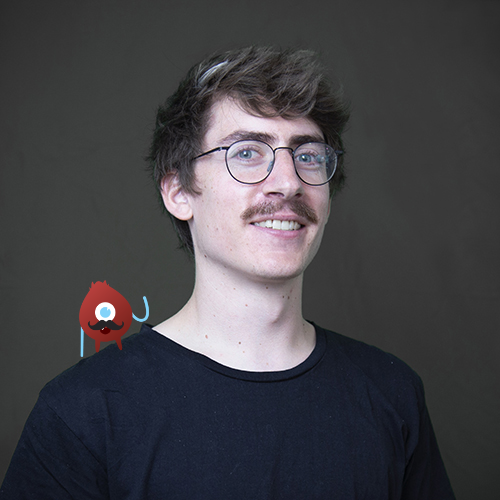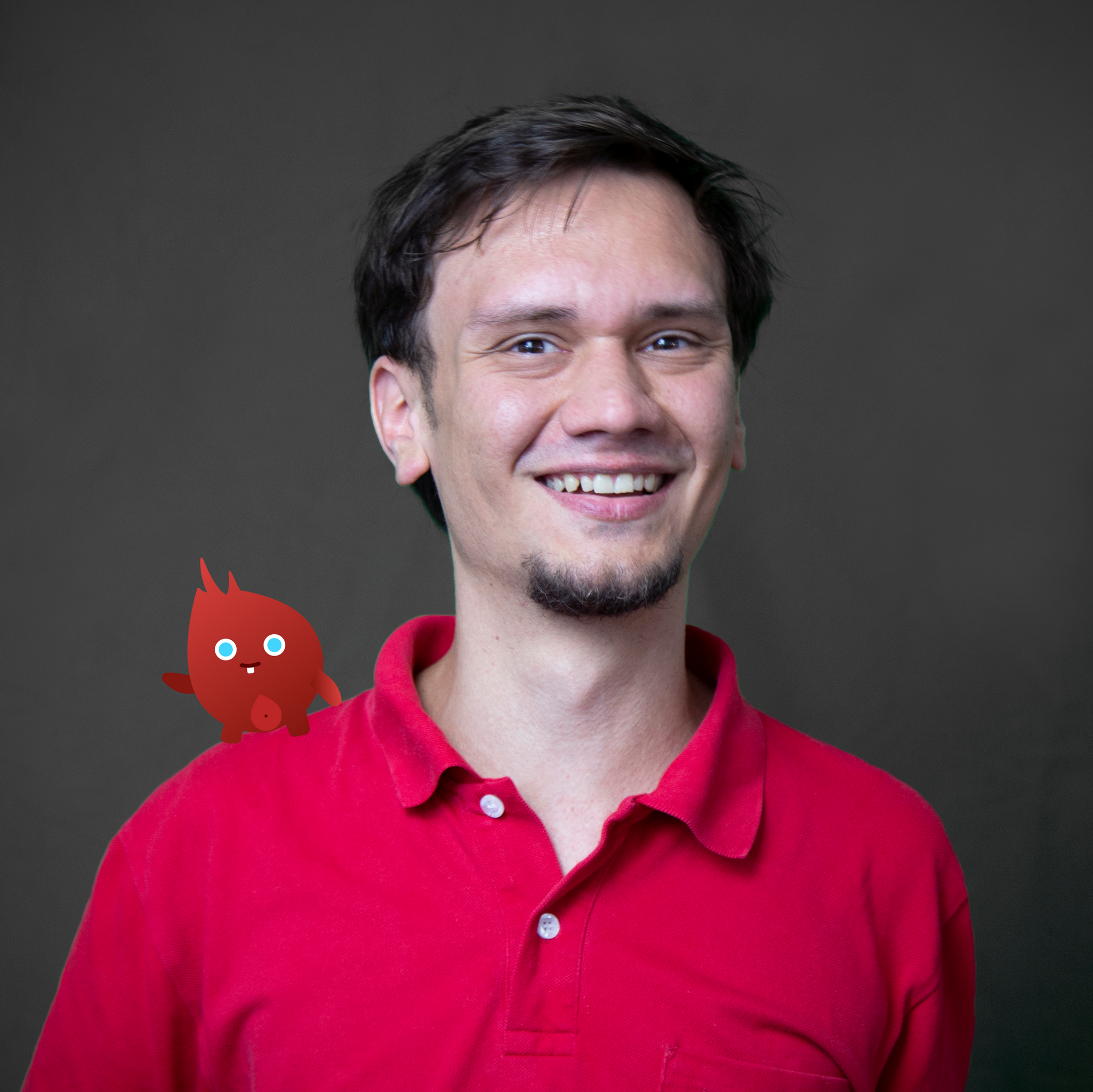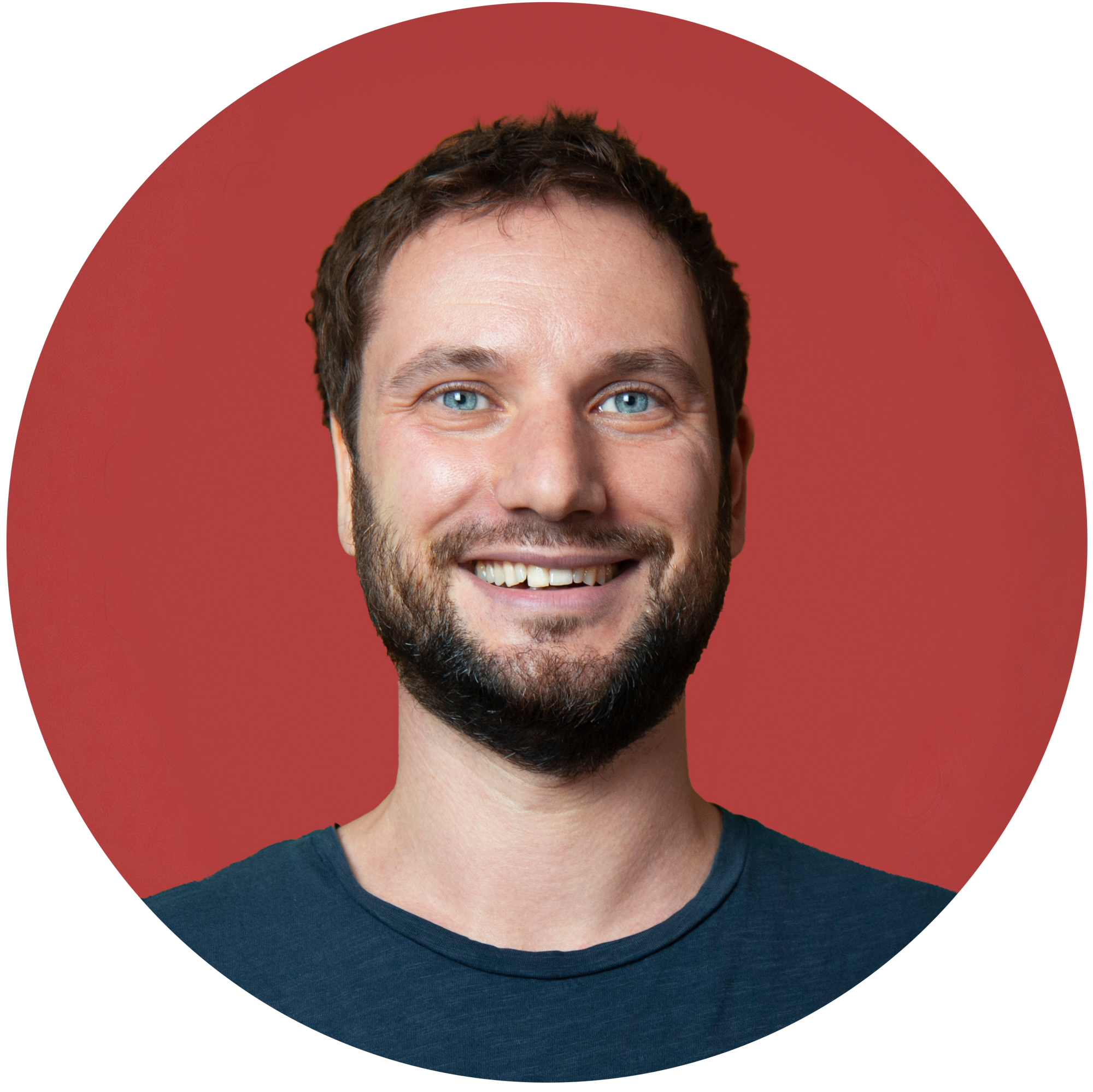2022-01-20 | Martin Grebner | 6 min read
Scandio Report - Entering IT as a Career Changer
January is not only the time for resolutions, the new year also marks the start of a change in many people’s careers. When looking for a job, it’s more than okay to think “out of the box” instead of just following the most obvious career path. Why not start working in IT for example? Scandio’s developers Natascha, Bene, Jacques and Mike give insight into their journey to IT and share what skills you should bring along besides a basic interest in technology topics.
What is your academic/technical background?
Bene: Bachelor, master, and PhD in mathematics (subfield topology, so nothing IT-related).
Jacques: I have a master’s in physics, specializing in biophysics.
Mike: I also have a background in physics: theoretical astrophysics in bachelor, experimental biophysics in master.
Nat: I have a PhD and a postdoc in astrophysics/cosmology.
When and why did you decide you preferred to work in IT?
Bene: I started programming while I was still at school. During my doctorate, I decided that a university career wasn’t for me, and I also ruled out banks/insurance companies. That left me with the IT sector, since I had already gained experience in this field as a hobby.
Jacques: During my first job after university in technical sales/support in the automation industry, I discovered my interest in software development and realized that I wanted a job where I was part of a creation process and that also challenged me mentally. So I quit my old job and started looking for open software developer positions.
Mike: After graduation, I thought quite a long time about which direction to choose. I was a bit disillusioned with the academic establishment after my master’s thesis. IT has always been my hobby, but it never occurred to me that my tinkering at home would be enough to get me started professionally. Then a lecture at university gave me the idea to look closer into IT.
Nat: I decided to work in the economic sector after my postdoc expired and therefore applied broadly to different industries. I chose IT in the end because I really enjoyed programming throughout my scientific career and because the environment and people are open, straightforward and curious (something I also appreciated in science).

So what peeked your interest in Scandio specifically?
Bene: I was looking for a job in spring 2020, exactly during the first COVID lockdown. I informed myself about companies that are active in the field of agile software development, mainly through brochures from job fairs. That’s how I finally came across Scandio, among others. I liked the company’s description of the work environment so much that I decided to apply here first - and luckily it worked out right away.
Jacques: I became aware of Scandio by chance through an advertisement. I then applied because of the convincing web presence.
Mike: I walked around the booths at the career forum IKOM dressed somewhat haphazardly in a jacket, and while I was told at another booth “At least you know how to dress, not like all the others here”, Christoph Köberle (one of our two Scandio CEOs), told me right away that “we don’t just paint slides, we really get things done and realise projects”. With that, a very positive relationship was established.
Nat: During my job search, I came across an ad for Scandio on Stepstone and applied. I was already attracted by the impression of an open mindset Scandio gave to me with the job posting and its website. The job interview was actually the most pleasant and likable I had at the time. That’s why I decided that Scandio was the right place for me.
What excites you about your work at Scandio?
Bene: The openness of the colleagues: as soon as you have questions, you always find an open ear, no matter what it’s about. The flexibility: no core working hours (except for what you agree on with the team), easy vacation requests and the ability to personalize your computer with any setup. Self-organization: Due to self-organized teams, the daily work is very straightforward, because you mostly only have to coordinate with your colleagues (and of course with the customer).
Jacques: The teamwork, the constant learning, the flexibility regarding working hours and vacations, and the fun colleagues.
Mike: The colleagues and the fun and shenanigans you can have with them, the creative possibilities and that you can and must always learn something new.
Nat: The fact that I learn something new every day and that we always work as a real team - no one is left alone. A non-existent dress code, flexible working hours, and the free choice of operating system are also important factors!
Career changer or not: What skills and interests should you bring to work in an IT environment?
Bene: Knowledge of some programming language (which one probably doesn’t matter), analytical thinking, imagination, creativity, fun with technology.
Jacques: Basic understanding of programming and basic knowledge of a programming language, fun in problem solving, a certain frustration tolerance, creativity and the ability to work in a team.
Mike: Curiosity, thirst for knowledge, communication skills, and a willingness to learn new things on a constant basis.
Nat: The openness and interest in new things, the ability to familiarize yourself with a topic out of one’s own interest. But also the ability to work in a team and the willingness to help.

What advise would you give to someone who is planning a career change into IT?
Bene: Just try to do a small hobby project in any programming language. Reading up a bit on topics like Docker, databases, web frameworks or CI/CD probably won’t hurt either.
Jacques: If you really feel like it, you should just go for it. And definitely don’t be discouraged by job postings that require a lot of skills and experience.
Mike: Start private projects and just try it with a few applications. If you have the right motivation, your prior education path is not that important.
Nat: Work on some private projects - there are lots of tutorials out there. Then just apply and see what the employees there tell you, so you get an idea of what the job entails and what people are like. And you shouldn’t get frustrated by all the tech terms you don’t know yet.
Are there any advantages a career changer can bring to the company?
Bene: You question a lot of things that otherwise are perfectly clear to IT specialists; which sometimes results in existing structures being rethought. In general, you might be a little less biased when it comes to finding solutions.
Jacques: You’re sometimes a bit more pragmatic about solutions, without getting lost in technical details or theoretical issues.
Nat: You can look at things from the outside the box and don’t see them through “IT glasses”; this gives rise to questions that otherwise wouldn’t have been asked, and that helps to see things from a different perspective.
Set aside your field of study and work at Scandio: Where else could you see yourself / What was your dream job as a child?
Bene: My dream job as a child: lock-keeper (we had a toy lock). Later on: Notary (you earn a lot of money there), composer (I did this a little bit as a teenager) or mathematician at the university (would have been too much uncertainty and traveling around the world). But I really enjoy programming ;)
Jacques: Depending on my mood, I could also see myself as a windsurfing or skiing instructor, physics professor at university, French teacher, musician or bicycle courier. My dream job as a child: train conductor.
Mike: Before applying to Scandio I considered studying philosophy and focusing on the philosophy of science. I also ran a pub for some time alongside my studies and cooked there too - that might be a nice sideline for retirement. As a kid, I wanted to emulate my dad and become a piano maker.
Nat: Scientist in cosmology, long-term student, dog trainer, carpenter or tailor. As a kid, I wanted to be a surveyor like my dad.
Thank you very much for your time and detailed answers!
If you want to learn more on the topic, there are numerous tutorials and courses available online, for example on coding. Good opportunities to start include freeCodeCamp, Udemy or codeacademy.
If you think "Scandio sounds great, I'd like to work there too", you are welcome to look for current jobs at Scandio or send us an unsolicited application. Either way, we look forward to hearing from you! What defines us as a company and what values we represent, you can find out here.
Scandiolife on Instagram.
Connect with us on LinkedIn.
Look what Scandio is tweeting.



